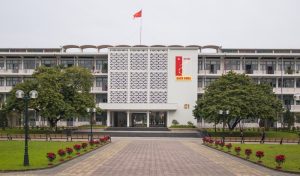Crop monitoring system in agriculture
This project details a revolutionary AI system designed to transform crop management through advanced data collection and analysis. By leveraging cutting-edge artificial intelligence (AI) technology, the system empowers farmers to assess crop health, proactively address problems, and ultimately optimize yields.
This project details a revolutionary AI system designed to transform crop management through advanced data collection and analysis. By leveraging cutting-edge artificial intelligence (AI) technology, the system empowers farmers to assess crop health, proactively address problems, and ultimately optimize yields.

Harnessing the Power of AI:
The system utilizes AI to collect and analyze data from various sources, providing a comprehensive picture of crop health. Here’s how it works:
- Data Collection:
- Sensors: The system can potentially integrate with in-field sensors to gather real-time data on factors like soil moisture, temperature, and humidity.
- Aerial Imagery: Integration with drones or satellite imagery allows for capturing high-resolution images of crops throughout the growing season.
- AI Analysis with Vegetation Indices: The system utilizes advanced AI algorithms to analyze the collected data, particularly focusing on vegetation indices. These indices, derived from the color spectrum of plant life, provide valuable insights into:
- Plant Greenness: A measure of chlorophyll content, indicating overall plant health and photosynthetic activity.
- Leaf Thickness: Provides insights into plant stress levels and potential water deficiencies.
- Moisture Levels: Analysis of moisture content in plants and surrounding soil.
- Temperature Variations: Identification of potential temperature extremes that could harm crops.
Actionable Insights for Farmers:
By analyzing this comprehensive data set, the AI system delivers farmers with:
- Plant Health Evaluation: The system generates a health assessment for the crops, highlighting areas of concern or exceptional growth.
- Early Problem Detection: AI can identify potential threats like pests, diseases, or nutrient deficiencies before they cause significant damage. This allows farmers to take timely action with targeted treatments.
- Optimized Care Recommendations: Based on the crop type, current conditions, and identified issues, the AI system suggests customized recommendations for:
- Watering schedules: Optimizing irrigation based on real-time moisture needs.
- Fertilization plans: Tailoring fertilizer application to address specific nutrient deficiencies.
- Targeted pest control: Recommending precise application of pesticides or fungicides only where necessary.
Benefits and Considerations:
This AI-powered crop assistant offers significant advantages for farmers:
- Increased Yields: Proactive problem detection and optimized care lead to healthier crops and potentially higher yields.
- Reduced Risks: Early identification of threats allows for timely intervention, minimizing crop damage and losses.
- Improved Resource Management: Data-driven recommendations ensure efficient use of water, fertilizers, and pesticides.
However, it’s important to consider factors such as:
- Data Security: Ensuring the security and privacy of collected data is crucial.
- Technical Knowledge: Training and support may be necessary to help farmers utilize the system effectively.
Despite these considerations, the potential of AI in crop management is undeniable. This project signifies a significant advancement towards a future of intelligent and sustainable agriculture.







